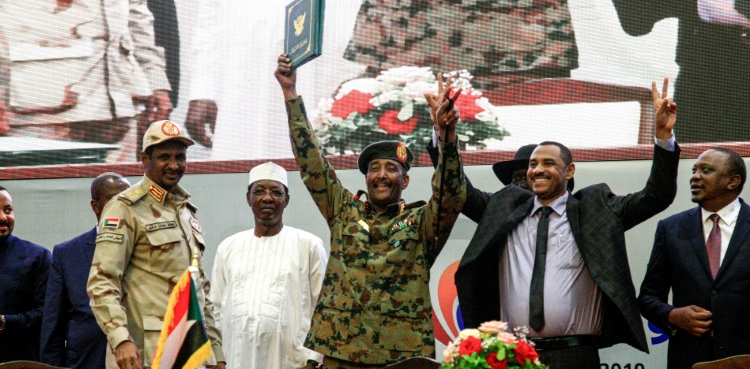KHARTOUM: Sudan’s new premier on Wednesday delayed announcing his picks for the first cabinet since the ouster of veteran ruler Omar al-Bashir in order to continue mulling nominees, a source close to the prime minister said.
Prime Minister Abdalla Hamdok, who took the oath last week, was set to name his key picks from a field put forward by the Forces for Freedom and Change (FFC) — a grouping born of a movement that initially took to the streets against Bashir’s 30-year rule and then forced the military rulers who deposed him to share power.
The new government was due to be announced on Wednesday in accordance with the timeline provided with the deal signed earlier in August between the FFC and the generals.
But a source close to Hamdok told AFP that the announcement would be delayed as “deliberations over the nominees are still underway.”
It was not immediately clear when the new cabinet would be unveiled.
Hamdok confirmed Tuesday that he had received the FFC’s list of candidates including 49 nominees for 14 ministries.
On Saturday, the premier told a local TV channel that he would select technocrats based on their “competence”.
“We are looking to create a homogeneous team to level up to these challenges,” he said.
The cabinet is expected to be selected largely by Hamdok, with key exceptions being the interior and defence ministers, who will be chosen by the military members of Sudan’s ruling body.
The first meeting bringing together the new government and the joint ruling council is scheduled for September 1.
‘Sustainable peace’
Women’s rights activist Tahani Abbas raised concerns about gender balance within the new government.
“I have mixed feelings toward the coming cabinet. The leaked composition of the government suggests that it doesn’t represent women to a satisfactory extent,” she said.
In his Tuesday statement, Hamdok said he would take into account a “fair representation of women”.
On August 21, Sudan swore in a joint civilian-military ruling body to steer the country through a three-year transition period.
The 11-member sovereign council includes two women among six civilian appointees. The other five members are generals.
Abbas has called for 50 percent representation of women across transitional government structures.
The power-sharing deal between the FFC and the generals outlined Sudan’s transitional period.
It provided for the creation of a legislative body of no more than 300 people and allotted 40 percent of the seats to women.
Sudanese analyst Osman Mirghani said “the coming cabinet will enjoy a massive popular backing as it confronts the challenges ahead.”
Mirghani, who is also the editor-in-chief of independent daily Al-Tayyar, says the cabinet should prioritise striking peace deals with armed groups across Sudan, especially those that rejected the transition roadmap.
The landmark agreement included a pledge to forge peace with armed groups within six months.


Leave a Comment